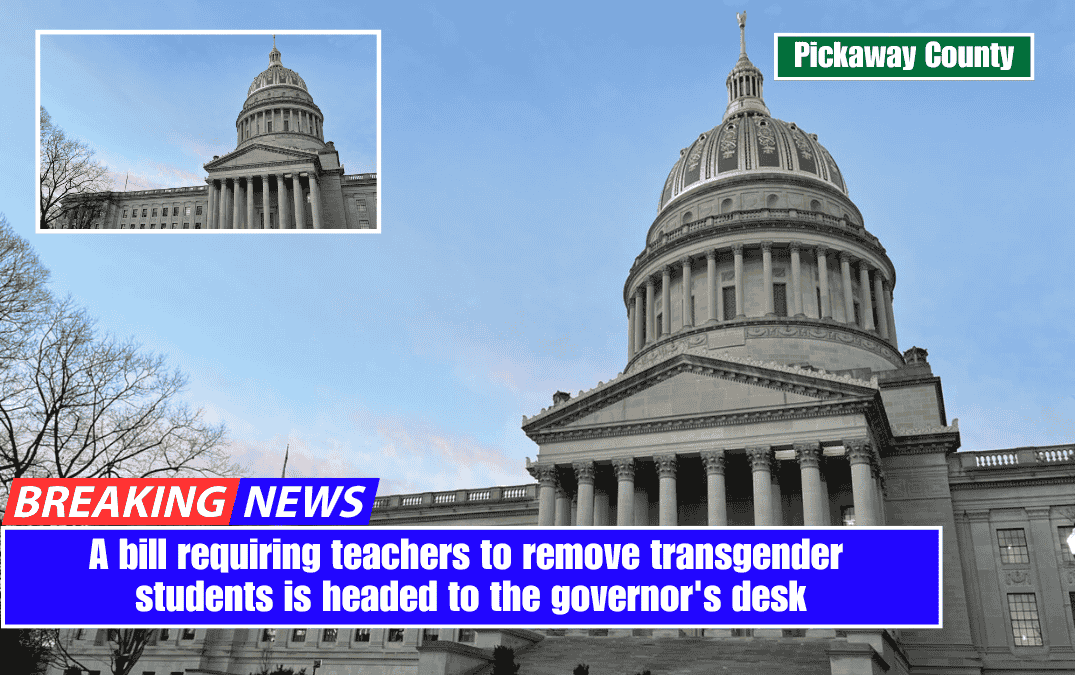The House convened at 9 a.m. on the last day of the session. 246 of the 2460 bills introduced this legislative session have passed.
Senate Bill 299 modifies the state’s regulations regarding pubertal modulation and hormonal therapy. Last year, a bill was passed that permitted hormonal medication therapy in cases where a child was at risk of suicide. The bill prohibits the provision of any gender-altering medication with the intent of gender transitioning.
The bill allows for court action against any provider who violates this section, as well as notification to the licensing board. Both amendments to the bill were rejected. The bill brought the legislative process to a close.
House Bill 2755 requires the West Virginia Board of Education to submit its rules and policies to the Legislature for review. This bill was a constitutional amendment that appeared on the ballot in 2022, and 50 of the 55 counties voted against it.
The motion to concur with the Senate on House Bill 2451 was denied. The Senate amendment eliminated the non-impact home-based business and specified how municipalities can regulate the businesses.
The amendment eliminated municipal licenses for independent contractors and sole proprietors who do not have a permanent location within city limits.
The amendment would not have allowed B&O or privilege taxes on businesses earning less than $10,000 per year. The amendment exempted individuals earning less than $10,000 per year from the $30 annual business registration tax. The House requested that the Senate recede. This amendment was approved by the bill’s conference committee.
The House refused to concur and asked the Senate to postpone House Bills 3181 and 3294.
House Bill 2267, which was rejected yesterday, was amended and approved. The amendment eliminated the additional hour that customers could spend at a bar after alcohol was no longer served.
The House sent the amended bill to the Senate. The Senate refused to concede, so a conference committee was formed. The report was received, and the bill was approved.
House Bill 2014 was passed, with an additional amendment awaiting Senate concurrence. The bill establishes a Certified Microgrid Program in the Division of Economic Development to attract high-impact data centers to the state and localize power generation for microgrids. The amendment changes how the taxes collected will be distributed:
- 50 percent to the Personal Income Tax Reduction Fund
- 30 percent of the county where the Data Center is located
- 10 percent to all counties on a per capita basis
- 5 percent to the Economic Enhancement Grant Fund administered by the Water Development Authority
- 5 percent to the Electric Grid Stabilization and Security Fund
House Bill 3166 requires each county board of education to develop standardized school safety mapping data. Boards must consult with local authorities to ensure that the data meets all requirements. The bill exempts the data from FOIA requirements and establishes an internal effective date of September 1, 2026.
House Bill 3411 abolishes expired boards and removes legislative membership requirements for certain committees. The Senate amendment removed changes to the membership of the CSI and the Fusion Center Oversight Commission. Furthermore, it allowed the Speaker and President to appoint an equal number of senators and delegates to commissions.
The Senate’s amended version of House Bill 3111 replaces the House’s $3,500 pay raise for some judicial offices (only for Circuit Court Judges, Family Court Judges, and Magistrates) with a $15,000 pay raise for Family Court Judges, $10,000 for Supreme Court, Intermediate Court, and Circuit Court, and no pay raise for Magistrates, all effective July 1, 2025.
The bill also reinstates all judges and justices to the Tier 1 pension plan, ignoring the bill that suspends employer contributions until the system is 125 percent funded. Because of these changes, the House agreed to an additional amendment to make the bill effective July 1, 2026, preventing it from affecting the 2026 budget, which was just approved yesterday.
Senate Bill 474 was taken up after several days of postponement. The bill eliminates diversity, equity, and inclusion-related divisions, officers, programs, training, and policies from all departments, divisions, agencies, boards, public primary and secondary schools, and higher education institutions.
The debate over amendments was limited to one hour, excluding questions and explanations. Twenty-two amendments were proposed to the bill, but only three were approved. The first amendment was adopted to clarify that any policy program, training, practice, activities, or procedures required by accreditation standards may be carried out.
The second amendment adopted states that nothing in the bill exempts the State Board of Education from the Human Rights Act. The third amendment adopted states that nothing in the bill excludes universities from the Human Rights Act.
Several amendments were rejected, including one-year extension of the effective date, First Amendment protection, a veterans’ exemption, collaboration with the private sector, community programs, and workforce programs that offer DEI programs, protection for university libraries, and financial aid.
Opponents of the bill argued that DEI is not a real issue in the state. The Minority Leader stated that DEI has never been about unqualified individuals skipping the line. It has been about qualified people getting a change.” The proponents did not address the bill except to explain, and the previous question was called. The bill passed with 87 votes in favor and 12 against. The bill was sent to the Senate for concurrence.















